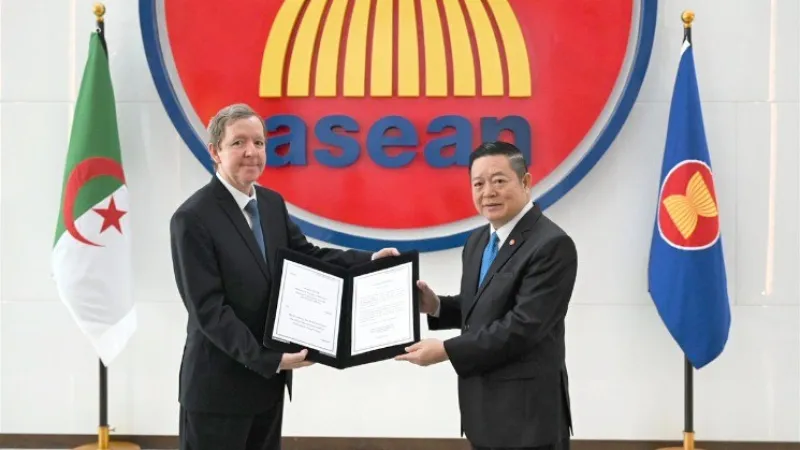
Algeria has officially joined the Association of Southeast Asian Nations (ASEAN), marking a pivotal moment in its foreign policy strategy and a clear effort to strengthen ties with one of the world’s most dynamic economic regions.
The move underscores Algeria’s commitment to diversifying its global partnerships beyond traditional Western allies.
The North African nation’s accession was formalised during the 58th ASEAN Foreign Ministers’ Summit held in Kuala Lumpur, where Algerian Minister of State Ahmed Attaf signed the Treaty of Amity and Cooperation (TAC).
The treaty serves as a foundational document for ASEAN’s diplomatic relations and regional stability.
“Algeria’s accession to the TAC is a significant development that aligns with our chairmanship’s goal of fostering deeper cooperation between ASEAN and our partners,” said Malaysian Prime Minister Anwar Ibrahim, who currently chairs the organisation.
The summit also featured a bilateral meeting between Minister Attaf and Prime Minister Ibrahim, where both parties reaffirmed their commitment to enhancing economic and diplomatic collaboration.
Attaf conveyed a personal message from Algerian President Abdelmadjid Tebboune, underscoring Algeria’s readiness to build a robust partnership with Malaysia and other ASEAN nations.
This engagement opens the door for Algeria to expand trade, investment, and political cooperation across a region that collectively accounts for a market of over 600 million people.
While energy remains Algeria’s primary export, the country has been exploring avenues to diversify its economy and reduce dependence on hydrocarbons.
“President Tebboune wants this partnership to move beyond diplomacy and foster real economic development,” Attaf said during the meeting, highlighting Algeria’s interest in joint ventures, technology transfer, and infrastructure collaboration.
Algeria’s shift toward Asia is part of a broader geopolitical strategy.
With ASEAN playing an increasingly influential role in global affairs, Algeria aims to be an active voice in regional dialogues on security, climate change, and sustainable development.
The country’s ASEAN membership signifies a new chapter in its foreign policy—one that seeks to rebalance its international relations portfolio by engaging more closely with emerging global power centres.



